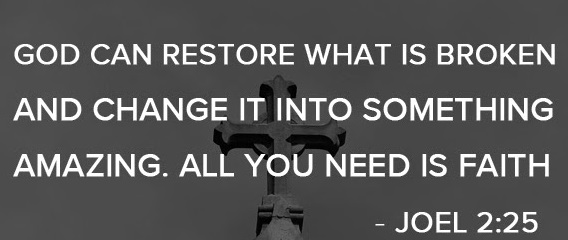Forgiveness is a word that easily rolls of the tongue, but the actual act of forgiveness is almost impossible sometimes. Sometimes the pain someone caused us or someone else we know is so profound, we don't see anyway of forgiveness. So why don’t people just forgive? That is a very good question. If forgiveness is easier and more beneficial, why isn’t it more popular? The sad reality is that there is short-term, relational destructive power in refusing to forgive. Holding onto the other's wrongs gives us the upper hand in our relationship. We keep a record of wrongs because we are not motivated by what honors God and is best for others but by what is expedient for ourselves.
Debt is power. There is power in having something to hold over another’s head. There is power in using a person’s weakness and failure against him or her. In moments when we want our own way, we pull out some wrong against us as our relational trump card. Debt is identity. Holding onto another's sin, weakness, and failure makes us feel superior to them. It allows us to believe that we are more righteous and mature than they are. We fall into the pattern of getting our sense of self not by the comfort and call of the gospel but by comparing ourselves to another. This pattern plays into the self-righteousness that is the struggle of every sinner. Debt is entitlement. Because of all the other person's wrongs against us, he or she owes us. Carrying these wrongs makes us feel deserving and therefore comfortable with being self-focused and demanding. “After all I have had to endure in relationship with you, don’t I deserve . . . ?” Debt is weaponry. The sins and failures that another has done against us become like a loaded gun that we carry around. It is very tempting to pull them out and use them when we are angry. When someone has hurt us in some way, it is very tempting to hurt them back by throwing in their face just how evil and immature they are. Debt puts us in God’s position. It is the one place that we must never be, but it is also a position that all of us have put ourselves in. We are not the judge of others. We are not the one who should dispense consequences for other's sin. It is not our job to make sure they feel the appropriate amount of guilt for what they have done. But it is very tempting to ascend to God’s throne and to make ourselves judge.
This is nasty stuff. It is a relational lifestyle driven by ugly selfishness. It is motivated by what we want, what we think we need, and by what we feel. It has nothing to do with a desire to please God with the way we live with one another, and it surely has nothing to do with what it means to love others in the midst of their struggle to live God’s way in this broken world. It's also scarily blind. We are so focused on the failures of others that we are blind to ourselves. We forget how often we fail, how much sin mars everything we do, and how desperately we need the grace that we are daily given but unwilling to offer to others. This way of living turns the people in our lives into our adversaries and turns the locations where we live into a war zone. Yet, we have all been seduced by the power of un-forgiveness. We have all used the sin of another against him or her. We have all acted as judges. We have all thought we are more righteous than the people around us. We have all used the power of guilt to get what we want when we want it and in so doing have not only done serious damage to the fine china of our relationships, but have demonstrated how much we need forgiveness.
Former Beatle, George Harrison died in December 2001. During his final days his wife and child, and his sister, Louise were at his bedside. It was Louise’s presence that was especially poignant. You see, she and George had been feuding with each other for almost forty years. Their feud began when Louise opened a bed and breakfast named “A Hard Day’s Night”. The rift was healed only when George realized he would probably die from his cancer. Louise reports that their reconciliation was difficult but satisfying. “We sort of held hands like we used to do” she said. “We used to talk for hours about life and God and the universe. We were able to look into each other’s eyes again with love. It was a very, very positive and loving meeting,” This episode tells us exactly what reconciliation is – two people who have been at odds with one another, coming together in a renewed and restored relationship, one where they are able to “look into each other’s eyes again with love.” This is what it means to reconcile with God, and with our fellow human beings.
The tragedy of course, is that George and Louise took so long to reconcile, that they missed out on so much. Similarly, it is a tragedy when we wait so long to be reconciled to those we love and to God.
Don't wait to forgive those that hurt you. Especially those that are close to you. One day you'll wake up and it will be too late. Decades will have past and those who you did not forgive will be gone.
Matthew 6:14-15 For if you forgive other people when they sin against you, your heavenly Father will also forgive you. But if you do not forgive others their sins, your Father will not forgive your sins.


